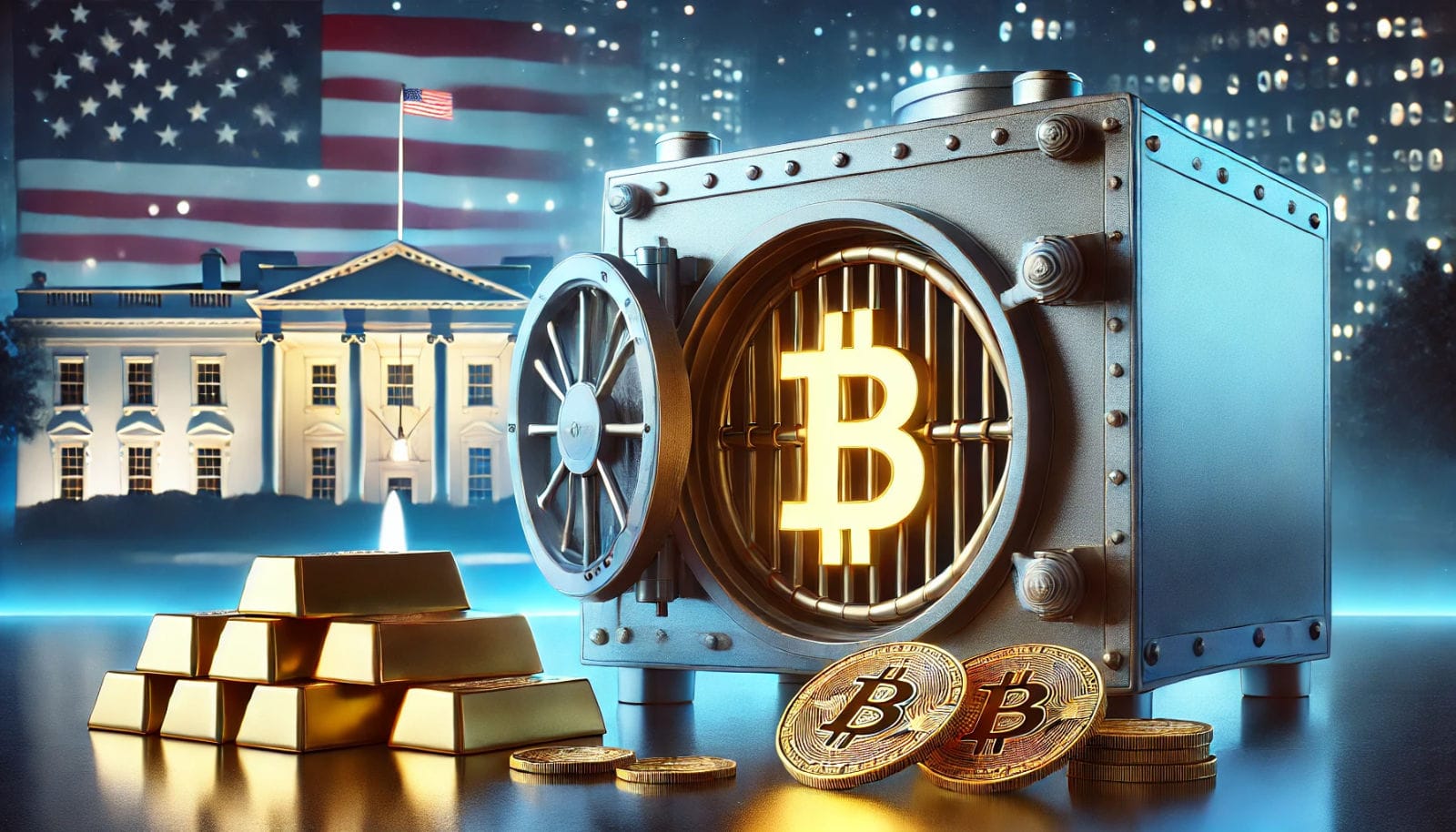America Gains a Strategic Bitcoin Reserve
The U.S. Establishes a Strategic Bitcoin Reserve. The government has pledged not to sell its bitcoin holdings and is exploring budget-neutral ways to purchase more, giving bitcoin a fresh stamp of legitimacy.

Erik
On Thursday, Trump ordered the creation of a Strategic Bitcoin Reserve—a fund designed to ensure that the bitcoins held by the US government aren’t sold. From now on, bitcoin will be regarded as a strategic asset.
All other digital assets are excluded. Everything except bitcoin—apologies to Ripple and Cardano—will go into a separate fund without strategic status. During the announcement of the decree, David Sacks, Trump’s self-proclaimed “crypto & AI tsar”, dramatically described the fund as a “Fort Knox for digital gold”.
America will be the Bitcoin superpower of the world.
— The White House (@WhiteHouse) March 8, 2025
The Golden Age of America has BEGUN! pic.twitter.com/HUQsNYfUiP
The Crypto Summit
The following day, a crypto summit was held at the White House. Trump, sporting an orange tie, hosted the event alongside his Finance (Bessent) and Economic Affairs (Lutnick) ministers—both ardent bitcoin supporters. Also in attendance were crypto heavyweights such as Brian Armstrong of Coinbase, Michael Saylor of MicroStrategy, and others.
No earth-shattering announcements emerged from the meeting. During the press conference, Trump reiterated that the era of crypto-hostile legislation is, at least for now, over.
TRUMP: Never Sell Your Bitcoin pic.twitter.com/VVLilkoMWm
— Dennis Porter (@Dennis_Porter_) March 7, 2025
What happened behind closed doors may prove even more significant in the long run. The managers of the Strategic Bitcoin Reserve have been instructed to purchase more bitcoin—using methods that are budget-neutral (in other words, without spending a dime of taxpayer money):
“The Secretaries of Treasury and Commerce are authorized to develop budget-neutral strategies for acquiring additional bitcoin, provided that those strategies have no incremental costs on American taxpayers.”
Buying More Bitcoin Without Taxpayer Money
How can you buy bitcoin without actually spending money? There are some creative approaches. The Bitcoin Policy Institute lists a few.
The simplest solution is to use the Exchange Stabilization Fund (ESF). Established in the 1930s to stabilize the dollar, the fund currently holds $39 billion and can be deployed without congressional approval. The Finance Secretary is authorized to trade in gold, foreign currencies, and “instruments of credit”. The latter term is defined so broadly that some even speculate the fund could be used to purchase bitcoin bonds from financial institutions—bonds that would pay out in bitcoin at maturity.
An alternative—but intriguing—option is the proposed BITCOIN Act by Senator Lummis. A key component of that legislation involves revaluing the US gold reserves, which could then be used to buy bitcoin.
It’s time for America to become the first BITCOIN superpower. 🇺🇸
— Congressman Nick Begich (@RepNickBegich) March 7, 2025
I am working on something ₿ig with @SenLummis
Stay tuned for next Tuesday. @btcpolicyorg
How does this work? Ever since the abandonment of the gold standard in the early 1970s, US gold reserves have been recorded at a price of $42 per ounce—even though the market value of gold has surged more than 70-fold. With a simple accounting tweak, the Finance Department could “unlock” hundreds of billions in capital without printing new money to purchase bitcoin.
Although the legislation is unlikely to pass, it is not entirely inconceivable. It would represent a departure from the past half-century’s policy of gradually demonetizing gold.
A Digital Turning Point
What has become evident over the past week is that the US government is taking its bitcoin reserve very seriously. This move confers upon bitcoin a level of state legitimacy that it had previously lacked.
Now that bitcoin is accounted for on the US government’s balance sheet, it has become far less controversial for companies, states, and other nations to follow suit.
What once began as the playground of a group of cypherpunks is now stored in a digital Fort Knox.
Are you a Plus member? If so, we'll explore the following topics:
- THORChain: Decentralized and Vulnerable
- IMF Puts an End to El Salvador’s Bitcoin Strategy?
- Ripple’s New Multimillion-Dollar Megaphone
